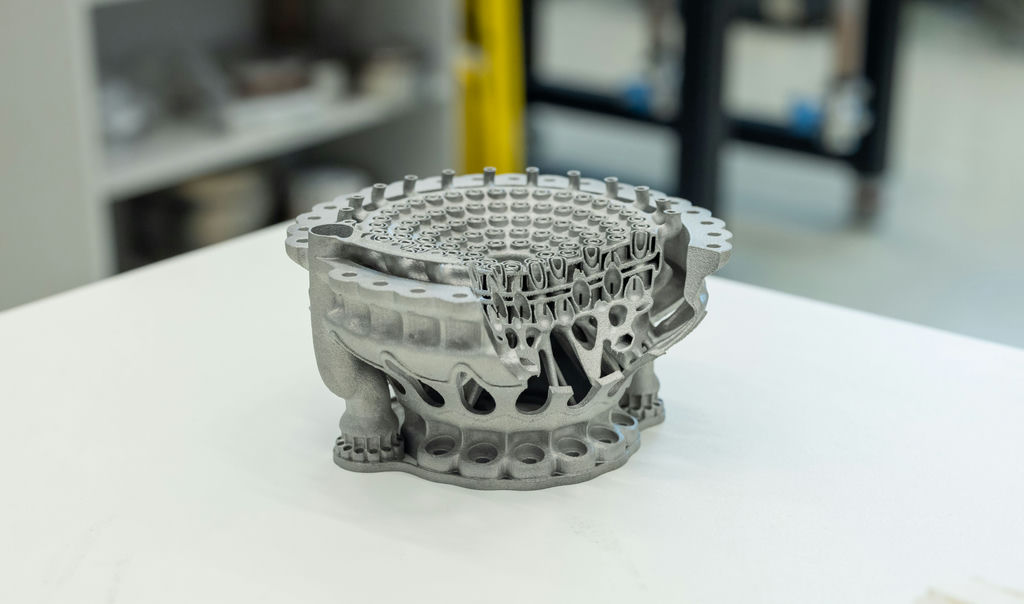The round-up of last week’s additive manufacturing news includes Tesla uses 3D printing to overcome challenges in traditional manufacturing, UAE’s first locally developed 3D printing alloy by TII unveiled at AM Conclave Conference; Paradigm 3D inaugurated Dh20 million 3D-printing facility in Dubai; World’s First 3D-Printed Vegan Salmon enters supermarkets and much more.
UAE’s First Locally Developed 3D Printing Alloy Unveiled at AM Conclave
AMALLOY, a proprietary new aluminum alloy powder, developed by the Technology Innovation Institute (TII), specifically for additive manufacturing was recently unveiled at the AM Conclave conference in Abu Dhabi.

Paradigm 3D on Thursday opened the doors to its Dh20 million 3D-printing facility in Dubai — the first in the Middle East capable of producing parts in accordance with the aerospace-specific EASA Part 21G regulation.
A Modern Digital Light Processing Technology to 3D Print Microfluidic Chips
In a new report published in Microsystems and Nanoengineering, Zhuming Luo and a scientific team in biomedical engineering, and chemical engineering in China developed an innovative digital light processing method.
Redwire Space Successfully 3D Prints a Human Meniscus
Researchers recently took tissue engineering to new heights when they leveraged the International Space Station (ISS) National Laboratory to successfully 3D print a human meniscus (a piece of cartilage in the knee joint).
Tesla Reinvents Carmaking with Quiet Breakthrough Using 3D Printing
To overcome the obstacles in conventional manufacturing, Tesla turned to firms that make test molds out of industrial sand with 3D printers. Using a digital design file, printers known as binder jets deposit a liquid binding agent onto a thin layer of sand and gradually build a mold, layer by layer, that can die cast molten alloys.



